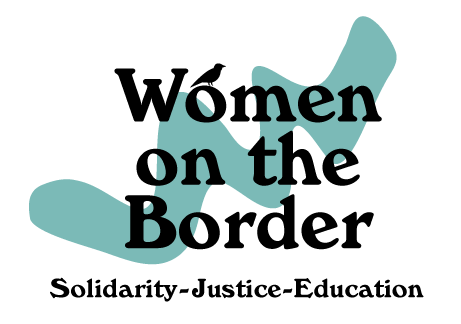(photo credit: Orlando Sierra/AFP/Getty Images)
In recent months, the U.S. has a new administration, the number of people crossing the southern border has risen and with it the number of stories in the news, but the reasons that people flee their homelands to seek asylum in the U.S. have not changed significantly. Along with poverty, violence, and economic and ecological displacement, violence against women continues to be one of the most enduring causes of migration from the Northern Triangle of Central America and elsewhere.
Honduras, El Salvador, and Guatemala have some of the highest rates of femicide in the world. The legacy of violence inherited from decades of Cold War conflict, drug trafficking, the ready availability of guns, and a criminal gang culture that has in many places become more powerful than the government all contribute to a climate of fear and intimidation for women as well as for men. Added to this are long-held patriarchal beliefs about men’s right to control the bodies of their wives and partners that contribute to the impunity with which men abuse and rape women and the failure of law enforcement to protect women from these criminal acts. Despite the danger associated with the journey north, many women choose to leave, knowing that the risk of being killed at home is far greater.
In interviews with women who have fled gender violence and are seeking asylum in the U.S., there are stories of violence within families and violence by members of criminal gangs. Sometimes it is a partner or husband who has sent the woman to the hospital multiple times with injuries and threatens to kill her if she reports him to the authorities. Other times a young woman is chosen by a gang member to be his girlfriend and told that if she does not go with him she will be raped forcibly by several members of his group and then killed.
The act of reporting such crimes to law enforcement is so dangerous as to be prohibitive in many parts of Central America. Scouts watch the government offices, and anyone even suspected of denouncing a gang member may be killed or have their family members killed.
A Mayan woman speaks of being raped multiple times by drug smugglers who passed through her village at night. The woman does not speak Spanish; she has barely any education and no way to find work in the city; she only knows that an uncle or a cousin lives in the U.S. and that there is work there and safety. She takes her baby daughter and heads north with a scrap of paper bearing his last known address, turns herself in, and waits in detention.
In order to pass a Credible Fear interview and be allowed to apply for asylum in the U.S., a person must establish that they have been persecuted in their home country on account of their race, ethnicity, religion, political views, or membership in a “particular social group.” For decades, immigration attorneys have relied on this fifth category when advocating for asylum status for women and for victims of gang violence, asserting PSG’s like “women unable to leave violent husbands,” “Salvadoran single mothers,” or “female heads of household.” The lack of specific references to gender violence in U.S. asylum law reflects the persistence of the idea that violence against women is a private/domestic problem rather than a national/political one.
In 2018, during the Trump administration, then-Attorney General Jeff Sessions intervened in the Matter of A-B, and asserted his power to override the decision of an immigration court to grant asylum to a Salvadoran survivor of domestic violence. He argued that those fleeing domestic violence and gang violence generally do not have grounds on which to declare a credible fear of persecution.
The ACLU and others promptly challenged this ruling, signing on to Grace v. Sessions (later Grace v. Barr), a case which challenged the Attorney General’s decision. In July 2020, the U.S. Court of Appeals for the District of Columbia vacated the Sessions opinion. Once again, those fleeing gender violence and gangs are permitted to seek protection in the U.S.
Inspired by the Me Too Movement, the UC Hastings Center for Gender and Refugee Studies has launched a documentary project called Immigrant Women Too. They are collecting and publishing the stories of women refugees who have fled gender violence in their home countries. The stories are powerful testaments to the strength and resilience of these women.
British-Somali poet Warsan Shire writes, “no one leaves home unless home is the mouth of a shark. … no one puts their children in a boat / unless the water is safer than the land.” — “Conversations About Home (at the Deportation Centre)”
